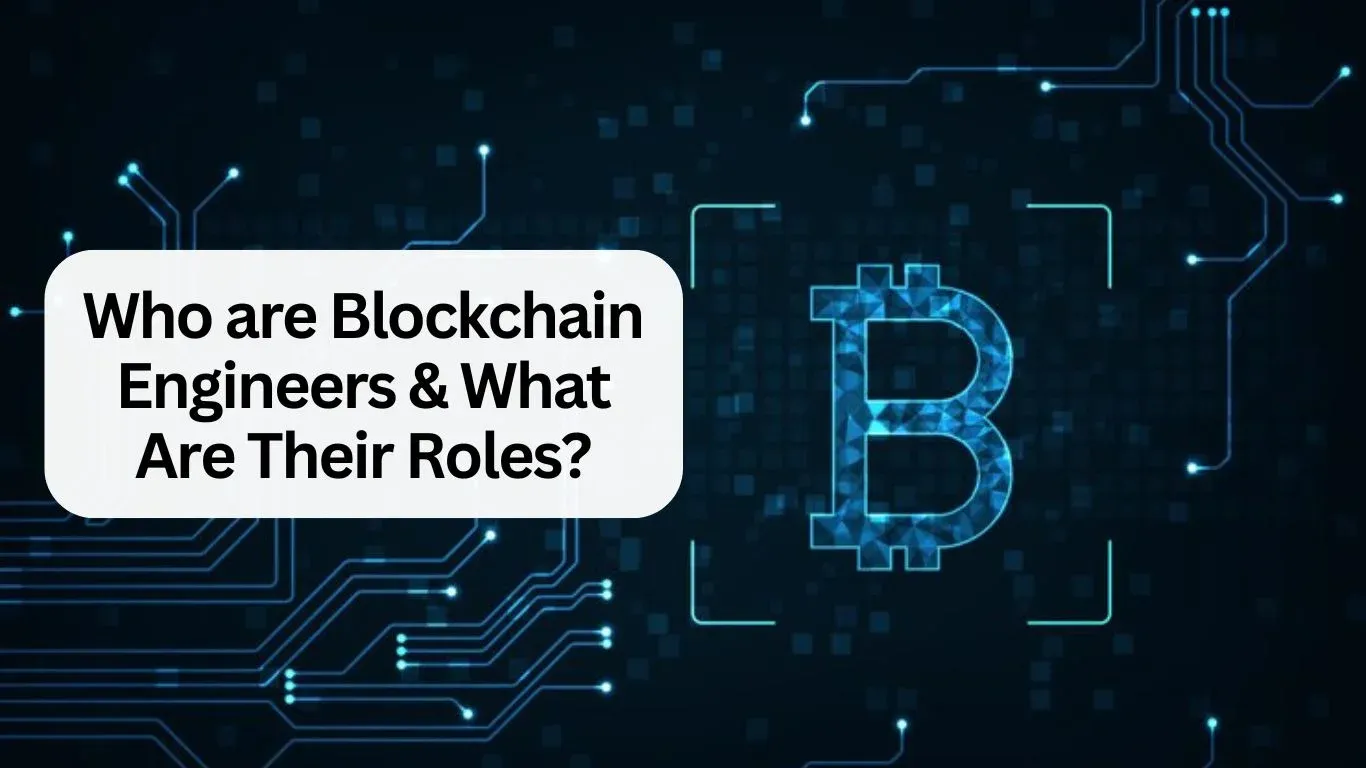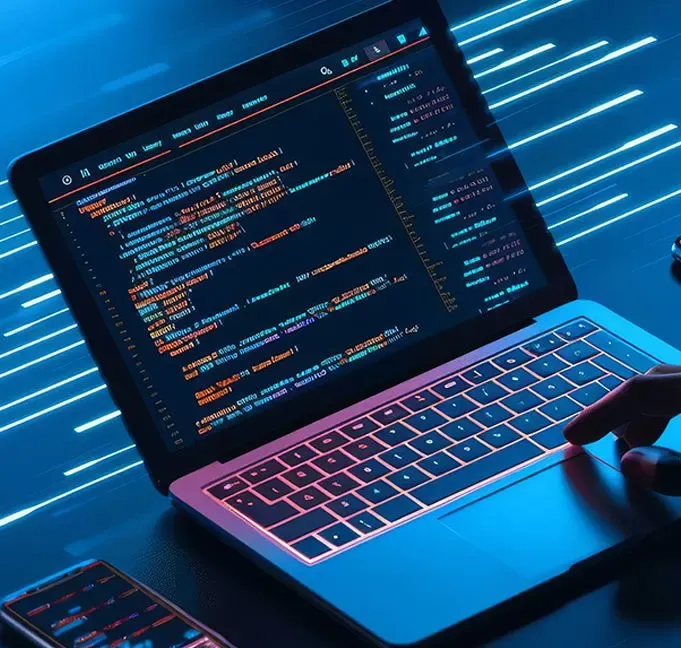Summary
(Blockchain engineering is one of the most in-demand tech careers today. This blog offers a complete guide to becoming a blockchain engineer, covering essential skills, degree and certification options, job roles, salary potential, and future scope. Learn how to enter this revolutionary field and grow your career in Web3 technologies.)
Before we discuss the role of a blockchain engineer, we shall first provide some context on the concept of blockchain technology, itself. If you especially have roots in the business world, you must have heard of blockchains, either in association with cryptocurrency or for its constantly expanding applications.
Blockchain is also known as DLT (Distributed Ledger Technology). It is a decentralized node network that stores data electronically, in the digital format.
Blockchain is essentially an immutable ledger, a consensus mechanism that records and stores transaction details in a secure manner, through the medium of a peer-to-peer network. As already highlighted, the applications of blockchain have now expanded well beyond cryptocurrency exchanges and are predictably going to continue being implemented across major industries, tech firms, start-ups, and more. It is being recognised by various industry leaders for its enhanced transparency feature maintained through and through. Thus, justifiably, technology is the ‘talk of the town’ across various sectors in India.
With the blockchain concept becoming more and more popular as a transferable skill, brand new job roles are opening up to those who wield a degree of expertise in the subject matter. One such role is that of a blockchain engineer. This blog shall discuss the roles, responsibilities, compensation structures and other details associated with blockchain engineers.
Get Complete Details From Expert
Who are Blockchain Engineers & What Are Their Roles?

By understanding who exactly is a Blockchain engineer and what roles they essentially take on, you’ll figure out whether or not it is the right career path for you. Blockchain development companies use blockchain technology. Top-ranking enterprises, including Coinbase, IBM, Walmart and HSBC, among others, implement the same revolutionizing mechanism.
Blockchain engineers are the masterminds behind the development of data structures, computer networking, algorithms and cryptography in every company.
Further, blockchain engineers are responsible for developing the software and infrastructure that are required to have blockchain networks function systematically. They must simultaneously ensure the security as well as efficiency of system operations.
Some technical skills you must be familiar with to become a trusted blockchain engineer include cryptography, distributed computing and programming. In the case of the creation of smart contracts, cryptocurrencies or other blockchain-related technologies, the hiring of blockchain engineers is crucial.
Specific Responsibilities of Blockchain Engineers
Blockchain engineers are predictably bestowed with several degrees of responsibility. Here’s a brief overview of what they are required to do:
- Design & Develop Blockchain Solutions
- Integrate Blockchain with the Existing Systems
- Collaborate Effectively with Cross-functional Teams
- Create Smart Contracts & Implement them Appropriately
- Ensure Security & Encryption
- Research & Implement Relevant Upgrades
- Optimize Performance
- Troubleshoot Problems & Debug
- Learn, Educate Clients & Peers, etc.
The responsibilities of blockchain engineers go beyond the above-mentioned points. However, a degree in blockchain can easily help you polish the basics so you can apply your learned knowledge to master all your future responsibilities as a blockchain engineer!
Skills Required to Become a Blockchain Engineer

While the role of a blockchain engineer can be quite rewarding, the path to getting there is lined with various expectations. Here are the skills required to become a blockchain engineer:
- A Background in Software Development: Blockchain engineers require a distinguished background in the field of software development in order to be able to create consensus processes, and sustainable blockchain protocols, and contribute to network architecture spontaneously.
- Strong Grasp Over Programming Languages: Blockchain engineers are required to be proficient in using programming languages like C++, Python, JavaScript, and Solidity, among others. With this skill, engineers shall be able to take charge of building/optimizing the basic infrastructure of blockchain platforms. This level of high-performance processing requires efficient programming language and coding knowledge.
- Idea about Codebases: Blockchain engineers should ideally have experience operating with codebases as they will be required to work with open-source code which underpins blockchain systems, including Bitcoin or Ethereum.
- Practical Experience with Open Source Projects: Experience with open source projects shall give blockchain engineers an upper hand. This will ensure that one has had a taste of the real-world blockchain development scenes and is likely to approach issues more proactively. Blockchain engineers will have to collaborate with talents within the blockchain community, itself.
- Knowledge of Data Structures & Standard Algorithms: Blockchain engineers are required to have a standard idea about algorithms and data structure as the fundamentals underpin the security and efficiency of blockchain platforms.
- Cryptography Understanding: Blockchain engineers are required to have at least a basic understanding of cryptography as it is essential for authenticating and securing transactions on blockchain platforms.
- Ability to Write Multi-headed Code: Blockchain engineers should be able to write multi-headed codes as scalable blockchain networks typically handle multiple transactions, all at the same time.
- Knowledge about Peer-to-Peer Networks: Blockchain engineers must have an understanding of how peer-to-peer networks function. They are required to develop and improve blockchain systems to aid scalability, efficiency and security.
Next, we shall take a look at the salary packages associated with blockchain engineers in India.
Blockchain Engineer Salary in India
The salary packages for blockchain engineers may vary on the basis of years of experience one has gathered within the relevant field. However, an estimate of the total pay for a Blockchain Engineer in India, is ₹11,25,000 annually, with an average of ₹9,50,000 in a year. The estimate of additional pay amounts to around ₹1,75,000 in a year, which may be awarded as a tip, cash bonus, commission, or even profit sharing.
Note: This is only a general calculation. You can look up specific employers to figure out how their compensation system works in regard to the role of a blockchain engineer.
Take the next step in your career ?
Final Word
With blockchain technology taking over various sectors in India – it is that new shining thing in town, with all the hype over this emerging technology being completely justified! Thus, there is all the more reason to inculcate a level of expertise within the field and become a blockchain engineer. You can now opt for a degree in blockchain online and get that education from the comfort of your home. Thus, be at the forefront of change as innovations in the business world continue to evolve and progress.
Enroll yourself to an online MCA degree with Amity Online University and get access to top-tier mentorship under the best-of-the-best educators. This year, transform your educational journey at the hands of experts and gear up for a bright, opportunity-abundant future!



